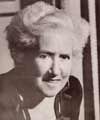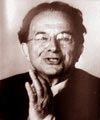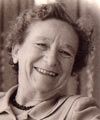Our History

Origins, Theory, and Practice: 1943 – 2012
by Jay S. Kwawer, Ph.D.



Students trained at the Institute join the distinguished ranks of alumni who have made exceptional contributions to the field of psychoanalysis. White Institute graduates participated actively in the founding of the American Academy of Psychoanalysis in the 1950s, the International Federation of Psychoanalytic Societies in the 1960s, and the Division of Psychoanalysis (“Division 39”) of the American Psychological Association in the 1980s. They are now well-represented in the governance and scientific activities of these organizations.
For several decades, the White Institute was the only nationally prominent psychoanalytic training center offering full training to psychologists identical to that of medical candidates. This commitment to interdisciplinary training long pre-dated a landmark class action lawsuit in the 1980s that resulted in institutes affiliated with the more orthodox American Psychoanalytic Association opening their doors to “non-medical” students.
Despite the growing incursions through the 1990s of managed care and “quick fix” psychopharmacological intervention, Institute candidates have continued to pursue intensive postdoctoral training program in psychoanalysis. Because self-awareness is a goal of treatment at White, all candidates are required to undergo a personal psychoanalysis aimed at freeing practitioners from personal, emotional difficulties that could hamper their work with patients.
Candidates are also closely supervised in their treatment of patients, many of whom are seen through the Institute’s low-cost Clinical Services. They work intensively with some of these patients for three or more times weekly for several years. Candidates also learn to apply the Institute’s psychoanalytic perspectives to the treatment of problems that may not require such intensive or extensive treatment. Much of their supervised work is psychoanalytically-informed psychotherapy (in which patients may be seen less frequently than they typically are in psychoanalysis), using treatment methods adapted to both clinical intervention with specific problems and consultations with couples, families, and organizations.
In keeping with the Institute’s innovative approach to treatment, graduates continue to eschew treatment based on clinical detachment and instead seek to establish the safe, trusting, personal relationships needed by people whose lives are in distress. As an educational and intellectual center, White maintains the highest standards in training practitioners. Freed by its institutional autonomy, the Institute has developed and defined its own training standards. These standards are widely emulated by newer training institutes around the U.S. and have more recently been adopted as the training standard endorsed by the inter-professional consortium of psychoanalytic training centers nationwide. Institute graduates take on major teaching and administrative responsibilities at hospitals, clinics, and universities throughout the New York City area, around the nation, and throughout the world.
The social services orientation of the Institute that emerged in the 1950’s was reflected in many of its unique programs and treatment service offerings. In the 1960’s, White offered a treatment program for college students who dropped out of school for psychological reasons that affected their ability to work and attend classes. In 1962, the Institute also initiated The Union Therapy Project to serve the mental health needs of industrial labor union members through short-term therapy based on analytic principles. This program was active for more than 25 years.
In response to more recent societal and psychological issues and pressures, the Institute has continued to develop specialized treatment services that now include The Eating Disorders, Compulsions & Addictions Service; The HIV Service; The Japanese Psychotherapy Service; The Lifespan Development Service; The Living with Medical Conditions Service; The Psychoanalytic Psychotherapy for Artists Service; The Sexual Abuse Service; The Trauma Service; and The Child and Family Center.
Today, The William Alanson White Institute still represents the most progressive wing of the psychoanalytic profession in the country. Institute faculty teach a wide range of views in psychoanalysis, building on the Freudian perspective and encouraging controversy, theoretical diversity, and challenge to intellectual dogma. Unlike many psychoanalytic training centers, White maintains institutional autonomy and theoretical integrity by remaining a free-standing, self-governing institution. After more than 70 vibrant, productive years, its teaching, treatment programs, and scholarship continue to reflect the creativity and courage that first brought the Institute to life.
Timeline
- 1943 – White Institute established as New York branch of the Washington School of Psychiatry
- 1946 – William Alanson White Institute of Psychiatry, Psychoanalysis and Psychology incorporated under New York State Education Law as a not-for-profit educational institution
- 1948 – Low-Cost Psychoanalytic Clinic (one of the first in the United States) established, granted license by New York State.
- 1950 – White Institute awards first psychoanalytic certification to fully-trained clinical psychologist (at a point in history when the orthodox American Psychoanalytic Association continued to regard psychoanalysis as a “medical” specialty)
- 1951 – William Alanson White Psychoanalytic Society established by Institute’s first Director, Clara Thompson, M.D., to provide ongoing continuing educational and professional growth opportunities for graduates of the psychoanalytic training program
- 1952 – Harry Stack Sullivan Society founded as undergraduate professional and scientific organization for White Institute candidates in psychoanalytic training
- 1952 – Extension Division created to provide continuing professional education to related professions, including psychiatric nurses, non-psychiatric physicians, public school teachers, guidance counselors, and clergy
- 1956 – Psychotherapy Service for adults established
- 1958 – Low-Cost Clinic expanded to include Counseling and Referral Service
- 1958 – Young Adult Treatment Service established
- 1959 – Division for Related Professions established, to replace former Extension Division
- 1962 – College Dropout Project, combining empirical research with provision of clinical service to college students interrupting their formal education
- 1963 – Union Therapy Project established, providing extremely low-cost clinical services to address the mental health needs of labor union members
- 1963 – Clinical Services expanded to include low-cost psychoanalysis (three times weekly); psychotherapy for college students, young adults, and adults; family therapy; group therapy; and a private referral service
- 1964 – Contemporary Psychoanalysis founded as a quarterly international journal of scholarship, research, and opinion as a joint publication of the White Institute and the William Alanson White Psychoanalytic Society, its professional society of graduates of the training program in psychoanalysis
- 1964 – White Institute becomes a Founding Member of International Federation of Psychoanalytic Societies
- 1977 – Continuing Professional Education Division established (replacing Division for Related Professions), ultimately enrolling over 250 professionals in various fields annually from mid-1970s through late 1990s
- 1982 – “Over Sixty” Clinical Service (subsequently re-named the Later Lifespan Development Center: The Wisdom Project) established for treating older adults
- 1986 – “One Week” and “One Day” seminars in Interpersonal Psychoanalysis offered to professionals from foreign countries and from outside the New York metropolitan area, resulting in ongoing professional training with colleagues from Norway, Sweden, Japan, Italy, and other locations
- 1990 – Program in Organizational Consultation and Development (subsequently re-named Organization Program) established, offering two-year certificate program for executives and clinicians engaged in organizational consultation utilizing applied psychoanalytic concepts
- 1993 – HIV Clinical Referral Service established to provide affordable psychotherapy for people living with AIDS and HIV
- 1993 – Sexual Abuse Clinical Service established
- 1990 – Organization Consultation Service established as an applied research and training arm of the certificate training program in organizational work, providing services to institutions and organizations seeking professional consultation
- 1995 – Eating Disorders, Compulsions and Addictions Service established
- 1996 – Child and Adolescent Psychotherapy Training Program established, offering three-year postgraduate certificate program to qualify professionals in consultation, diagnosis, and treatment services to children, adolescents, and families (has evolved into the Child and Family Center)
- 1996 – Center for Applied Psychoanalysis established, replacing Continuing Professional Education Division, offering courses and seminars to qualified professionals whose work is facilitated by an increased familiarity with psychoanalytic concepts (psychiatrists, physicians, psychologists, social workers, members of the clergy, psychiatric nurses, teachers, and counselors.
- 1996 – Psychotherapy Services for People in the Arts established to help with difficulties encountered in the lives and work of performing and creative artists
- 1997 – White Institute formally amends its charter to extend postgraduate training in psychoanalysis to include doctoral-level clinical social workers
- 1997 – Infertility Service established to provide psychological services to individuals and couples struggling with problems of infertility
- 1999 – Japanese Psychotherapy Clinic established to provide Japanese-language psychotherapeutic services, reflecting a thirty-year relationship between the White Institute and teaching therapists in Japan
- 2001 – American Psychoanalytic Association awards its First Psychoanalytic Community Clinic of the Year Award to Clinical Services, William Alanson White Institute
- 2001 – Trauma Response Service established to address the needs of traumatized individuals, institutions, and organizations, and to provide public education on the psychological impact of traumatic events
- 2001 – Frieda Fromm-Reichmann Society founded as a professional and scientific organization for students and graduates of Child and Adolescent Psychotherapy Training Program
- 2003 – Intensive Psychoanalytic Psychotherapy Program established, providing one-year certificate training in psychoanalytic psychotherapy for established, practicing clinicians, to make available a concentrated, practice-oriented educational experience to these clinicians who wish to apply an interpersonal psychoanalytic perspective to their work with patients
- 2004 – Mary S. Sigourney Award (given by the Mary S. Sigourney Award Trust, New York, to organizations and individuals for outstanding contributions to psychoanalytic education and research) presented to William Alanson White Institute
- 2006 – Living with Medical Conditions Service, provides clinical and referral services in conjunction with ongoing study group (established in 2002) to patients and their families affected by a medical diagnosis of chronic illness.
- 2007 – Immigrant and Refugee Program of the Child and Family Center, provides specialized clinical services for immigrant and refugee patients and their families
- 2007 – Autistic Spectrum Service for Adolescents, provides a range of clinical services for adolescents and their families affected by Asperger’s and other mild autistic spectrum disorders
- 2006- Edgar Levenson, MD, is awarded the Sigourney Award “for his exploration of diverse areas, particularly redefining the boundaries between the personal unconscious and the social and political worlds.”
- 2007 – Lesbian, Gay, Bisexual, and Transgender (LGBT) Study Group formed to promote knowledge, sensitivity and awareness for clinicians who work with LGBT individuals
- 2008 – Suicide Bereavement Service, provides clinical and educational services, in conjunction with the Suicide Bereavement Services of NYC, to those whose lives have been affected by the suicide of a relative, friend, partner or parent
-
2010- A Charter Amendment is approved by the New York Department of Education to create the License Qualifying Program in Psychoanalysis.
-
2010-The LGBT Clinical Service is established to provide low-cost psychotherapy and psychoanalysis to members of the Lesbian, Gay, Bisexual and Transgender community.
-
2010- The Low Cost Supervision Service is established to provide an opportunity for New York State licensed mental health professionals to work together in supervision with an experienced interpersonally/relationally-oriented psychoanalyst from the William Alanson White Institute.
-
2011- The WAWI Clinic is granted a Clinic Waiver from NYSED to provide services within the practice of Psychology, Social Worker, Mental Health Counseling, Family Therapy, Creative Art Therapy and Psychoanalysis.
-
2011- WAWI hosts a very well attended conference on “Understanding and Treating Sexual Abuse in the Orthodox Jewish Community”.
-
2013- WAWI Co-sponsors the conference “Black Psychoanalyst Speak-Part 2” with IPTAR and the New School for Social Research.
-
2014- The American Psychoanalytic Association extends a formal invitation, which is accepted, to WAWI to become an “approved” Institute member, and for the Psychoanalytic Society to become an affiliated Society of APsaA.
-
2014- The Institute celebrates the 50th anniversary of the publication of its journal Contemporary Psychoanalysis with a full day conference.
-
2015- The Mary S. Sigourney Award (given by the Mary S. Sigourney Award Trust) awarded to Jay Greenberg, PhD, for his work “focusing on creating conversations among analysts working within different conceptual, institutional, and geographic traditions, and participating in those conversations.”
-
2015-2019 -WAWI receives approval to provide Continuing Education for Social Workers, Licensed Psychoanalysts, Licensed Mental Health Counselors, Licensed Family Therapists, Licensed Creative Arts Therapists and Psychologists.
-
2016 The Online Intensive Psychoanalytic Psychotherapy Program for Russian Speakers is established to provide a two-year training program to clinicians in Russian.
-
2017-The one year Couples Therapy Training and Education Program is founded to provide training from an Interpersonal Psychoanalytic-Systemic Couples Therapy perspective.
-
2017- Through collaboration with the New York Immigration Coalition, WAWI provides a series of services, including pro bono treatment, to staff working with families separated by the Trump Administration’s Family Separation Policy.
-
2018-The Online IPPP is established, providing a one-year program for practicing clinicians similar to the onsite program. This is a concentrated practice-oriented educational experience for clinicians who wish to apply an Interpersonal psychoanalytic perspective to their work.
-
2018- The Institute celebrates its 75th Anniversary with a full day conference: “Interpersonal Psychoanalysis and The Birth of Relationality”.
-
2019- The Mark Blechner Psychoanalytic Scholarship is established, awarding tuition to a person of color or a transgender person.
-
2019- Online Topic-Oriented Psychotherapy Program (Online TOPP) is established for experienced clinicians. In 2021, the course is revised as an overview of the contributions of four seminal WAWI Interpersonalists: Edgar Levenson, Stephen Mitchell, Philip Bromberg and Jay Greenberg.
-
2020- Due to the COVID pandemic, all WAWI training programs and its Clinical Services move to a virtual platform.
-
2020- In response to the murder of George Floyd, WAWI founds the Antiracism Action Working Group. Over the next two academic years, the Institute sponsors six community Town Halls to increase understanding of race and racism in the community, in their clinical work and the Institute
-
2021- “Confronting Racism, Discrimination and Othering: Perspectives from Around the World” series of Saturday morning talks begins.
-
2021- June Jackson Christmas Scholarship is establish by the Board of Trustees for psychoanalytic candidates and CAPTP students to provide tuition scholarships to Black students.
-
2021- Our Psychoanalytic Training program opens in the fall with hybrid classes.
-
2021-Our Clinic reopens with a COVID protocol, including a vaccination requirement and required masking.
-
2022- The Michael Herman Scholarship is established for Adult Psychoanalytic candidates with a strong interest in working with chronically depressed patients.
-
2022- The Child and the Adolescent Psychotherapy Training Program, Intensive Psychoanalytic Psychotherapy Program and the Couples Therapy Education and Training Program return to in-person classes.
-
2022- Jack Drescher, MD, is awarded the Mary S. Sigourney Award (given by the Mary S. Sigourney Award Trust) “for his pioneering work in the areas of gender and sexuality.”
Since its founding in 1943, more than 470 postdoctoral psychoanalysts have been trained at the White Institute. Most of these have been M.D. psychiatrists and doctoral level clinical psychologists with Ph.D. or Psy.D. degrees. Several graduates have also come from other disciplines, like anthropology, philosophy, and clinical social work.
More than 190 of the nearly-325 living alumni of the White Institute’s Psychoanalytic Training program continue to teach and supervise in the various programs and clinical services; their teaching and supervisory services are pro bono and unsalaried.
More than 100 professionals have thus far been graduated from the Institute’s psychoanalytically-informed Child and Adolescent Psychotherapy Training Program and its Organization Program.
In 2008, the Institute’s Clinical Services provided direct service to more than 350 patients, comprising over 6,500 hours of clinical service at modest, affordable fees, to an underserved, at risk population of mostly uninsured patients for whom such quality clinical services would otherwise be unavailable.
William Alanson White Institute of Psychiatry, Psychoanalysis & Psychology 20 West 74th Street, New York, NY 10023 | (212) 873-0725